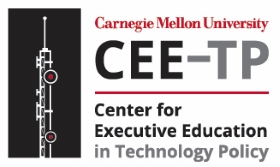
Marvin Sirbu
Professor, Carnegie Mellon University, & member of the U.S. Federal Communications Commission’s Technological Advisory Council, Engineering and Public Policy
Contact
Address
5000 Forbes Avenue
Pittsburgh, PA 15213
5000 Forbes Avenue
Pittsburgh, PA 15213
Bio
Carnegie Mellon 1985 -Education
- Sc.D. (Electrical Engineering with a minor in Economics) 1973, Massachusetts Institute of Technology
- M.S. (Electrical Engineering) 1968, Massachusetts Institute of Technology
- B.S. (Electrical Engineering and Mathematics) 1966 and 1967, Massachusetts Institute of Technology
Research
Professor Sirbu coordinates a research program in telecommunications information technology, policy and management. The research is concerned with how public policies influence the deployment of new information technologies, and conversely, what public policies are required to accommodate new technological developments. For example, local exchange competition is being facilitated by new technologies for delivering integrated voice, data and video over fiber optic, coaxial cable, twisted pair, or wireless networks. Engineering economic models of alternative local telecommunication network architectures are used to examine issues of comparative economics, economies of scale and scope, and impact of regulatory policies governing competitive entry, unbundling, and interconnection.The rise of integrated gigabit networks requires new approaches to the regulation and pricing of telecommunications services. Old regulatory models which treat telephony, packet switching and cable services differently for regulatory purposes must be revised when all information types are reduced to data bits. We are exploring the regulatory implications of Next Generation Network (NGN) technologies (e.g. packet-switched over fiber) and the implications of integrated networks for regulatory policy. Pricing of integrated networks is explored through formal and empirical models of network supply and demand that can lead to efficient and practical pricing structures for both unicast and multicast traffic.
Broadband networks are becoming more central to knowledge-based economies. We are exploring the impact on economic growth of the availability and use of broadband by combining broadband deployment data with economic census data. We are also concerned with how to revise universal service support mechanisms for wireless and NGNs.
